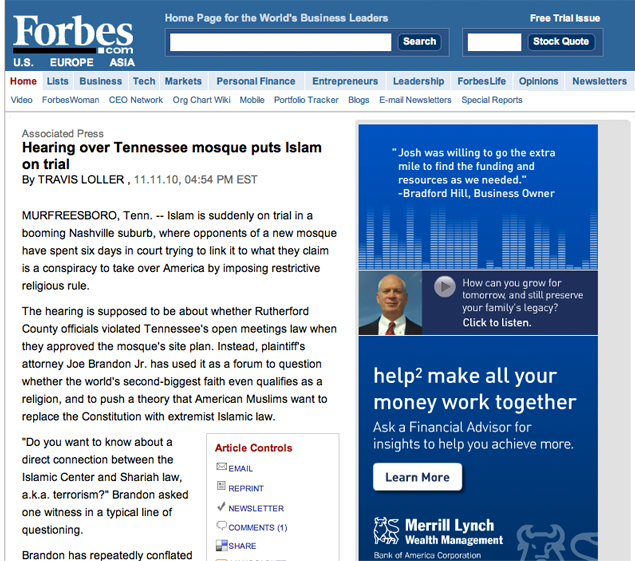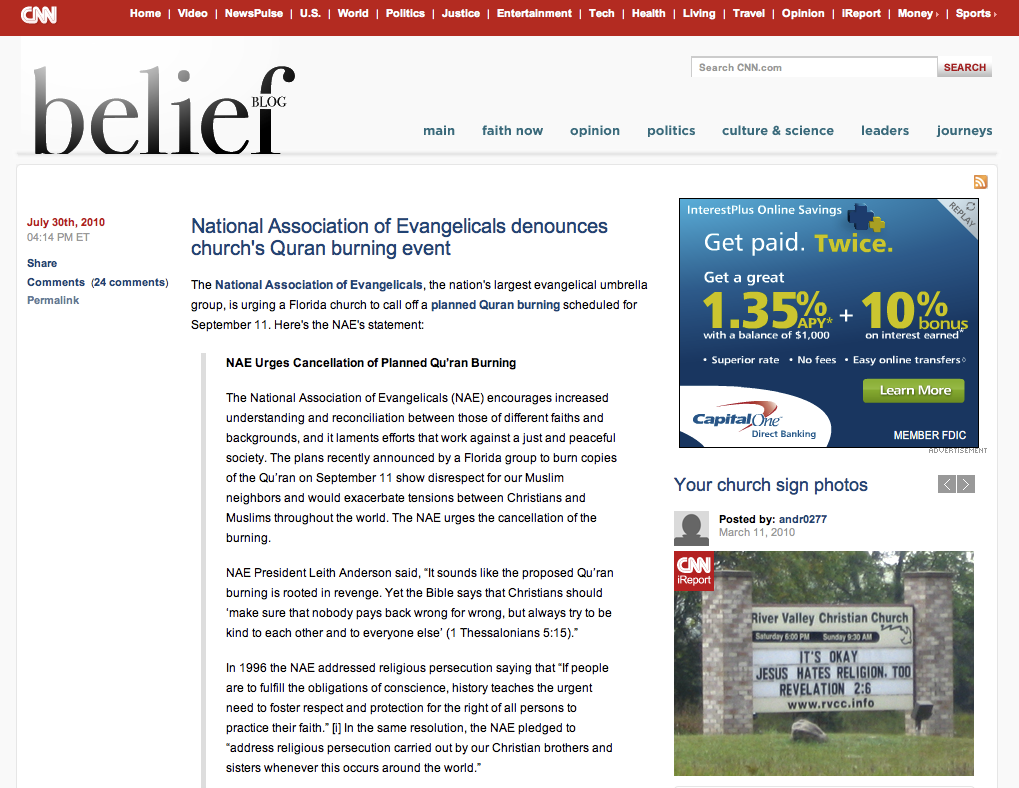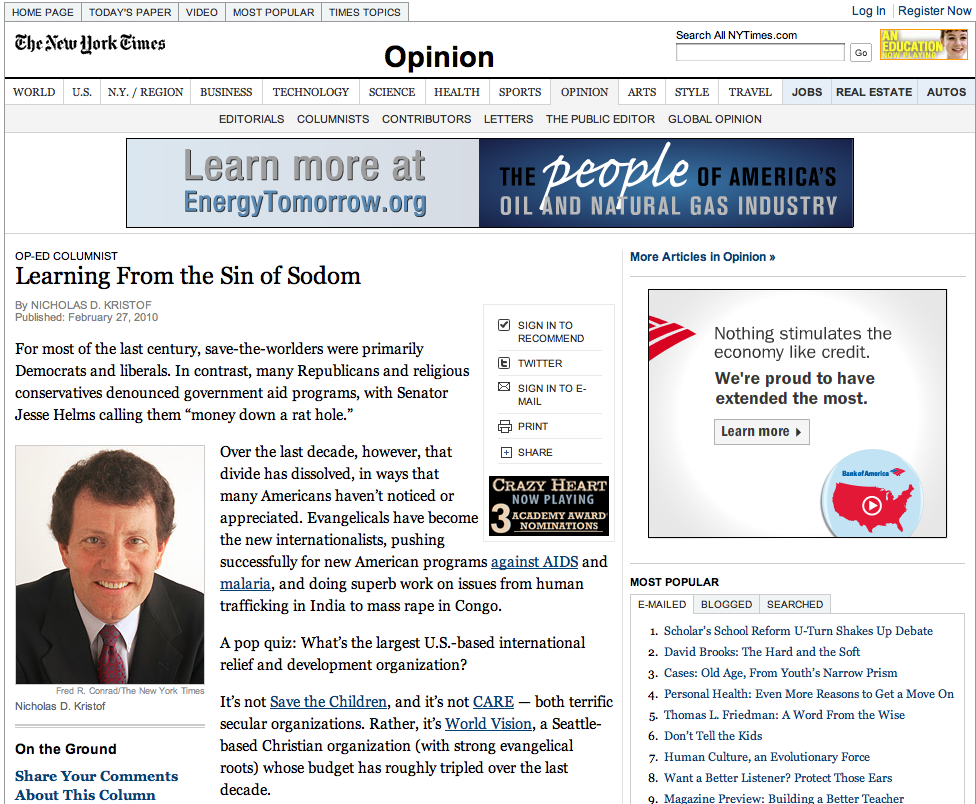Hearing over Tennessee mosque puts Islam on trial
 MURFREESBORO, Tenn. -- Islam is suddenly on trial in a booming Nashville suburb, where opponents of a new mosque have spent six days in court trying to link it to what they claim is a conspiracy to take over America by imposing restrictive religious rule.
MURFREESBORO, Tenn. -- Islam is suddenly on trial in a booming Nashville suburb, where opponents of a new mosque have spent six days in court trying to link it to what they claim is a conspiracy to take over America by imposing restrictive religious rule.
The hearing is supposed to be about whether Rutherford County officials violated Tennessee's open meetings law when they approved the mosque's site plan. Instead, plaintiff's attorney Joe Brandon Jr. has used it as a forum to question whether the world's second-biggest faith even qualifies as a religion, and to push a theory that American Muslims want to replace the Constitution with extremist Islamic law.
"Do you want to know about a direct connection between the Islamic Center and Shariah law, a.k.a. terrorism?" Brandon asked one witness in a typical line of questioning.
Brandon has repeatedly conflated a moderate version of Shariah with its most extreme manifestations, suggesting that all Muslims must adhere to those interpretations.
At one point, he asked whether Rutherford County Commissioner Gary Farley supported hanging a whip in his house as a warning to his wife and then beating her with it, something Brandon claimed was part of "Shariah religion."
The commissioner protested that he would never beat his wife.
County attorney Jim Cope objected to the question, saying, "This is a circus." The rhetoric has conjured up comparisons to another culture clash that played out in a Tennessee courtroom a hundred miles and nearly a century away from Murfreesboro, a college city of 100,000 that is among the fastest-growing communities in the country. In 1925, the world watched as evolution came under attack at the Scopes monkey trial in Dayton, Tenn.
Chancellor Robert Corlew has consistently given the plaintiffs leeway to present testimony by nonexperts and documents that they cannot prove are legitimate, saying he reserves the right to strike things from the record later.
Corlew, who holds an elected office, has given little explanation for why he has allowed the testimony to stray so far afield.
Since it is not a jury trial, the judge can ultimately disregard anything he deems irrelevant. Several attorneys suggested he may want the plaintiffs, three residents who object to how the mosque came about, to feel they were able to have their say.
That could explain why Corlew has allowed Brandon to repeatedly question witnesses about whether Islam is a legitimate religion - even after the Department of Justicestepped in with a brief stating that it was.
When Farley, the commissioner, told Brandon the federal government defined Islam as a religion, Brandon responded, "Are you one of those people who believes everything the government says? Are you aware the government once said it was OK to own slaves?"
Other faiths have risen to the defense of the Islamic Center of Murfreesboro. The newly formed Interfaith Coalition on Mosques, which is composed of prominent Catholics, Jews, Muslims, and Southern Baptists and other Protestants, has filed a brief in the case.
It's good for the mosque's opponents to get their day in court - testimony is to resume Friday - said the Rev. Joel Hunter, an evanglical megachurch pastor and coalition member.
But it's "really out there" to question whether Islam is a religion, said Hunter, who leads a Longwood, Fla., congregation called Northland, A Church Distributed.
Seeking to prove that the mosque has terrorist leanings, witnesses have pointed out that board member Mosaad Rowash previously had pro-Hamas postings on his MySpace page, something the mosque's leaders have not denied. The U.S. government considers Hamas, a Palestinian Islamic political party with an armed wing that has attacked Israel, a terrorist organization.
The political views of Rowash - who hasn't been called to testify and hasn't commented publicly - and other board members are "totally irrelevant," said Deborah Lauter, the director of civil rights for the Jewish Anti-Defamation League, which sponsors the interfaith coalition.
If all of the members of the Islamic Center of Murfreesboro were public cheerleaders for Hamas, it would still be illegal to discriminate against them because the First Amendment protects freedom of worship, she said.
Even the group that provided the information on Rowash, the Washington-based Investigative Project on Terrorism, doesn't claim that the MySpace postings prove anything about the Islamic Center of Murfreesboro or its members.
Managing director Ray Locker said the Washington group provided the information about Rowash to a Tennessee resident who sent an inquiry about the mosque. He said how such information is used is beyond his group's control.
"We don't consider all Muslims to be terrorists," he said. "The vast majority of American Muslims just want to worship freely, just like members of other religions."
That wasn't the message of witness Frank Gaffney, the president and founder of the Washington-based Center for Security Policy and a former deputy assistant secretary of defense in the Reagan administration.
While acknowledging he was not an expert on Shariah law, Gaffney testified that Shariah, and by extension the new mosque, poses a threat to America.
Shariah isn't really law, at least not law as a universally recognized, codified body of rules and rights, the way Americans have come to know it. Shariah is a set of core principles that most Muslims recognize as well as a series of rulings from religious scholars.
It's some of those rulings, such as stoning a woman to death for committing adultery, that many non-Muslim Americans find reprehensible. But many Muslims, in America and around the world, are equally horrified by them, said Mohammad Fadel, an assistant professor of law at the University of Toronto Faculty of Law and an expert on Islamic law.
The mosque project has had problems outside court as well. A sign at the construction site was spray-painted with the words "Not Welcome" and torn in half, and federal investigators have offered a $20,000 reward for information leading to an arrest in what they say was the arson of a dump truck on the grounds.
Hunter, the Florida pastor, said he studied American history in college and knows that what is happening to Muslims today has happened to other groups in the past.
"Every minority - and Islam is very much a minority in this country right now - has had to struggle for equal rights," he said. "Islam is facing that now and we will not rest until they have equal rights with other religions."
FIND THIS ARTICLE AT: http://www.forbes.com/feeds/ap/2010/11/11/general-us-rel-islam-on-trial_8098629.html?boxes=Homepagebusinessnews





